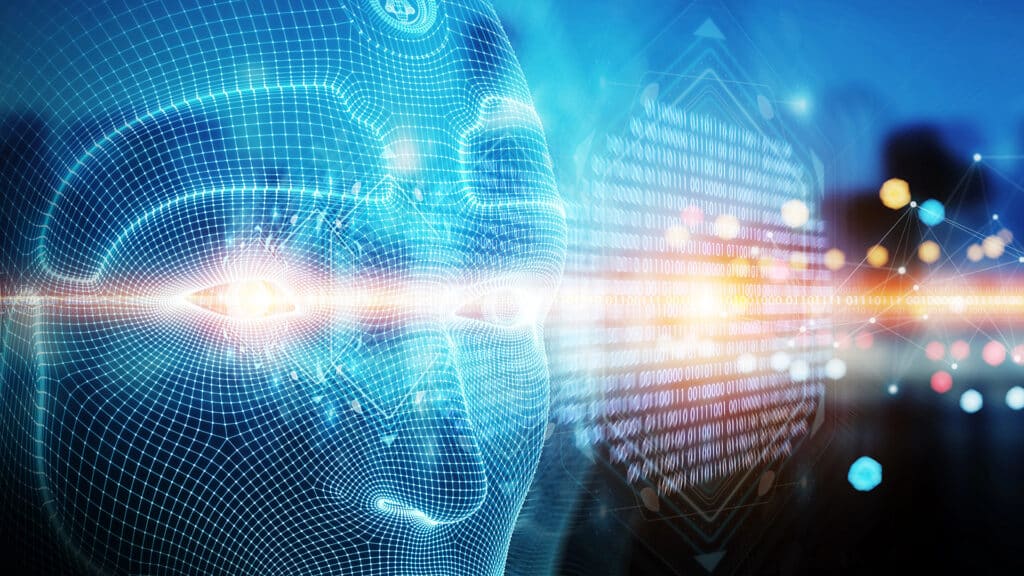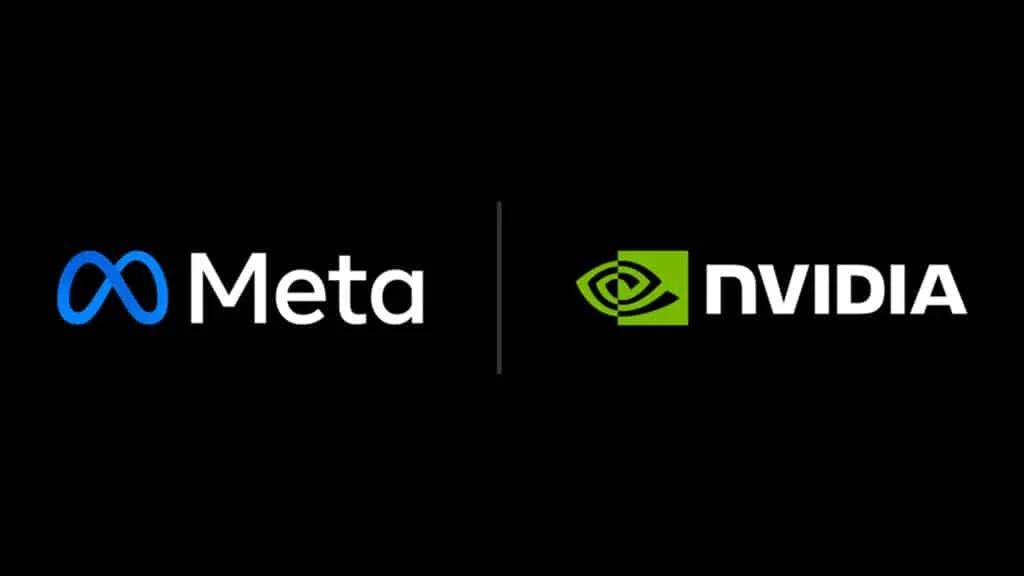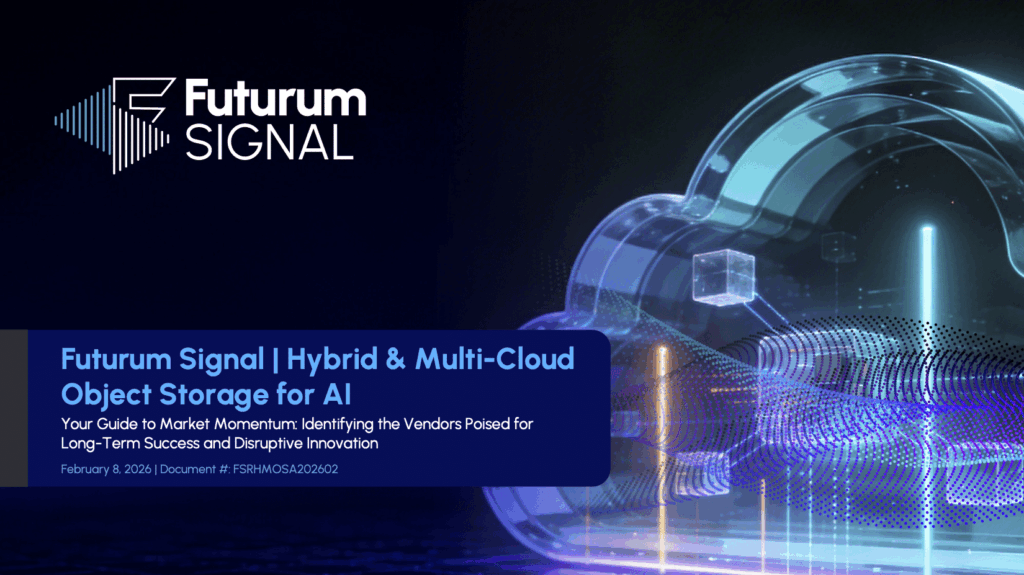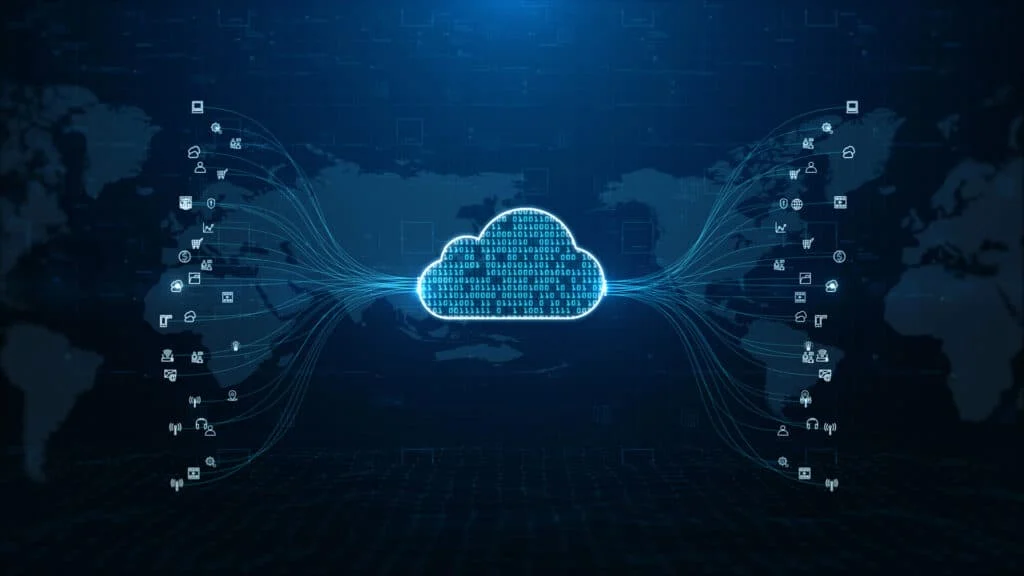On this episode of the Six Five On the Road, hosts Dave Nicholson and Lisa Martin are joined by Dell Technologies‘ Brian Doty and Moogsoft‘s Phil Tee for a conversation on the integration and future vision following Dell’s acquisition of Moogsoft. This acquisition has sparked significant interest, especially with the evolution of Dell’s APEX AIOps portfolio, which now integrates CloudIQ, Moogsoft, and introduces Dell’s new Application Observability product.
Their discussion covers:
- The strategic vision and near-future plans for Dell’s APEX AIOps portfolio post-acquisition
- Brian’s insights on the evolution of Dell’s system management and its implications for infrastructure customers
- Phil’s perspective on the AI revolution’s impact on IT operations, comparing its significance to the industrial revolution.What excites Brian the most about the future of AIOps at Dell and the benefits for customers
Learn more at Dell Technologies and Moogsoft.
Watch the video below, and be sure to subscribe to our YouTube channel, so you never miss an episode.
Or listen to the audio here:
Disclaimer: The Six Five Webcast is for information and entertainment purposes only. Over the course of this webcast, we may talk about companies that are publicly traded and we may even reference that fact and their equity share price, but please do not take anything that we say as a recommendation about what you should do with your investment dollars. We are not investment advisors and we ask that you do not treat us as such.
TRANSCRIPT
Lisa Martin: Welcome back to Six Five On the Road from Las Vegas, covering Dell Technologies World 2024, the AI edition. I’m Lisa Martin with Dave Nicholson. Dave, what’s been some of your favorite conversations we’ve had so far at the AI edition? Dell is in its Swifty AI era.
Dave Nicholson: Honestly, my favorite conversation is going to be the next one we’re about to have.
Lisa Martin: That wasn’t even planned, ladies and gentlemen. We’ve got two guests here willing to give you a fantastic conversation. Brian Doty is here. Welcome Brian, the Director of Product Management at Dell Technologies. And Phil Tee, the co-founder and chairman, CEO of Moogsoft. Guys, welcome.
Phil Tee: Great to be here.
Lisa Martin: Well, happy to have you. So Phil, starting with you, Dell generated a lot of buzz a little less than a year ago with the acquisition of Moogsoft. We’ve learned a lot in the last 36 hours from Dell about Apex AIOps portfolio, which includes products like CloudIQ and Moogsoft, as well as Dell’s new application observability product. Talk to us about what’s transpired since that acquisition in less than a year’s time and what some of the new things are on the horizon for the portfolio.
Phil Tee: It is been a crazy busy nine months actually, it turns out. And what we’ve been doing is busily pulling together both the Moogsoft technology and CloudIQ into what I think is going to be an incredible AIOps suite, and of course joining the duo to make a trio is Instana as part of our application observability to give us full stack so we can actually take monitoring all the way from the LUN, if you like, the fundamental storage element all the way through the application cross domain and use AI at every step along the way to give unparalleled insights.
It’s super exciting. At Dell, we may be one of the very few companies out there with such a comprehensive AIOps suite, and this is just the beginning. This is our first act and where are we going to go with this, I think is going to really knock people’s socks off as we build a fully integrated portfolio and take that forward across the whole of the operations.
Lisa Martin: It sounds like it’s already knocking people’s socks off I’m sure. Brian, you’re a Dell OG from what I understand.
Brian Doty: 25 years.
Lisa Martin: No.
Phil Tee: Is that right?
Lisa Martin: Really?
Brian Doty: Yeah. People joke that-
Lisa Martin: Did you start when you were like four?
Dave Nicholson: Since you were three?
Lisa Martin: Yeah.
Dave Nicholson: What’s up with that?
Phil Tee: Child labor laws in Texas.
Lisa Martin: Child labor. But you’ve had the opportunity to see a tremendous amount of change in evolution of systems management of Dell’s products. Talk to us about what you’ve seen and what the changes and the opportunities mean for Dell’s customers existing and future.
Brian Doty: So much. I joined Dell in the late nineties, and when I joined Dell, we had just made a foray into enterprise, right? Servers were a new thing. I remember still the first generation of Dell systems. The idea of remote management was nonexistent back then. The industry hadn’t developed the technologies like we have with iDRAC today with our PowerEdge servers in order to allow customers to remotely manage systems, not have to walk into the data center. So much has changed. Data center’s a hostile environment, I don’t know if you’ve ever been in one, but it’s not a good place to be. But take that as a starting point. Now we’re talking about bringing together all of Dell infrastructure and fleet-based management.
We have a product today called Apex AIOps previously called CloudIQ, which has a capability to monitor and report on virtually everything, every Dell enterprise asset under a customer’s control. And not only can we monitor and report on that, but we can provide insights to customers. We can tell them why the failures are occurring. We monitor performance of systems so people can understand, and actually as Phil pointed out, bringing together the Instana application performance monitoring as well as the capabilities in Moogsoft to get to the bottom of what’s causing the issues. But it’s a stark contrast what we have today and what I had when I joined.
Lisa Martin: I can’t even imagine.
Dave Nicholson: So just to be clear, when I was young, data centers were something we called caves and the data was cave paintings on the walls. So yeah, we’ve been in data centers before, but I want to dive in a little on this.
Brian Doty: A little semantics.
Dave Nicholson: It’s very easy to say that AI is infusing all of these things. Is a lot of that taking the form of natural language processing in terms of enabling the operator to query the system so you see something go wrong and instead of having to go through and parse all sorts of logs yourself, the ability to say, “Has this ever happened before?” Or something maybe not that simplistic, but is that when you talk about AI helpers in that regard, give me an example of how AI is enhancing this.
Phil Tee: I can give you a bunch of examples. It turns out there’s well over 150 patents in what we announce today. And we’ve been at this for quite a while. We’ve been applying AI to the IT operations problem for 16 plus years. Now, let me give you two. So the first example is you get a lot of alerts. And when I say a lot, I’m talking billions of data points can come into one of our systems and it’s like finding a needle in a haystack of haystacks. And you need to be able to narrow that down. Now, if you try and do that as a human being unassisted or even write a lot of rules that model the behavior of what you’re trying to do, it’s extraordinarily difficult to get there.
We can use some very clever machine learning technology to understand the patterns that the eye wouldn’t see to be able to find that needle in the haystack. And we do it incredibly efficiently inside of the instant management part of the portfolio. That’s one example. Another example is at Dell, it’s been around even longer than Brian. You have to remember, this is a forty-year-old company. And so there is something in the region of 180,000 written knowledge articles inside of Dell, which describe everything from how do I get this server to reboot or how do I extend a logical partition in a particular storage device?
It’s a wealth of knowledge. And what we can do by using generative AI, of course, very much the darling of the moment as a technique, is give people the ability to query that knowledge base without having to be the expert that knew everything in there. So you can be elevated to the level of a super god of infrastructure by asking simple questions like, “How do I perform this automation or this task?” And it will give you the answer back in a concise form. So that’s just two examples, but there are many, many, many more.
Brian Doty: And just to jump on the back of what Phil was talking about, when we had our first meeting post-acquisition, Phil said something that really struck me and he says it’s about humanizing IT operations. And I think about that too, especially with your example, the AIOps assistant or GenAI capability. Yeah, there’s tens of thousands of knowledge based articles. There are hundreds of Dell security advisories.
And when we published these back in the day, I thought, again, going back to when I joined, published all these articles, we assume customers read them. Well, they don’t, right? But if you had an assistant where you could ask a question or even as what we do today with AIOps, the infrastructure observability capabilities, we curate those articles. You don’t have to read a hundred or a thousand. Here’s the one that is relevant to you. So bringing the right information to the customers at the right time. So that’s why I like the term humanization of IT operations.
Phil Tee: Now I want to pile on your pile on.
Brian Doty: Of course.
Phil Tee: We heard in Jeff Clark’s keynote today about the 27 followed by 30 zeros.
Lisa Martin: Yes. Yes.
Phil Tee: It is crazy, crazy, crazy how much scale we are talking about this new AI revolution is going to create. And to manage that, if AI didn’t exist, we’d have to invent it because it’s gone way beyond the scope that human beings have to be able to comprehend information. You just can’t do it. So you’ve got to have these techniques or you will just drown in the complexity of the infrastructures that we’re deploying today.
Dave Nicholson: Are operators, for lack of a better term, going to need to have the same level of computer science background in the future that they have needed in the past. Maybe you’ve heard reference to Jensen Huang of NVIDIA being interviewed and his counsel to someone going into college is maybe the whole STEM thing doesn’t have the allure that it used to. Do you have any thoughts on that? You talk about humanizing these operations, humanizing IT.
Does that mean that the French literature major might actually be better suited for those kinds of things because their mind is working in terms of language? And if we can increasingly communicate with these systems with human language, then a facility with human language becomes more important than the computer side of things. Is there a risk? First, do you see it going in that direction? Second, is there a risk that our computer science and muscles atrophy and we become slave to the machine?
Phil Tee: Yeah. Gosh, that’s a really big question.
Dave Nicholson: You have 30 seconds.
Phil Tee: In some regards, what he said was both profoundly stupid and profoundly insightful. So if we allow our muscles of problem solving deep tech expertise, at the end of the day, Jeff was on stage wearing a “It’s only math” t-shirt.
Lisa Martin: Only math.
Phil Tee: If we don’t teach our kids the ability to comprehend the underlying underpinning foundations of this, we’re toast because eventually we will build an Antikythera machine so complicated, nobody will know how to maintain or propagate it. On the other hand, I think maybe where it is coming from-
Dave Nicholson: This is where we pause and we explained to the audience not familiar with the device found under the sea.
Phil Tee: The Antikythera, exactly. The people, it’s a rich source of science fiction.
Dave Nicholson: Look it up, folks.
Phil Tee: Really it’s rich source of science fiction.
Dave Nicholson: I’m sorry, I digress. Please, please continue.
Phil Tee: On the other hand… It’s all good. On the other hand, maybe the point that he’s making is we all become knowledge workers in the world of GenAI. We don’t need 20 years of experience in how to string together the right incantation to get the computer to do what it is that you want to do. So the what and the why becomes much more important than the how. So you take language skills. I know of one startup ALFI.ai, and what they’re doing is they are language skill people that are understanding how to look for insensitive language in an email or potentially dangerously litigious language in an email and their background? They are language majors, they understand language and they understand DEI. Now, look, I’ve worked amongst a lot of really bright engineers, but that is not a skill that I’ve come across a lot in the lab.
Dave Nicholson: Interesting.
Phil Tee: So we can weaponize that skill, if weaponize is-
Dave Nicholson: In a positive way, sure. Yeah, sure. Sure. Any thoughts on my rant?
Brian Doty: No, that’s a good question. I agree with Phil. It doesn’t fundamentally change what the IT professionals are doing. It’s just that they’re not as busy in the minutia. In fact, when I talk to IT pros a lot, I’ve worked in systems management virtually my entire career. They want to free themselves up to work on more important things. And so it certainly changes things. And I don’t know, this may be too long of an example, but I have some friends who work in Seattle and they do film.
And I remember talking to one of them over lunch, different world entirely when the day they realized their job would’ve changed forever. And it was when a certain electronics manufacturer had created a DLR camera that could actually do all the post-processing. And so he was a sound and lights person and his job changed, it completely made, it didn’t make his job irrelevant. But all of a sudden now, they didn’t need these huge groups of folks setting up stages for film and video. But he still, he leverages skills in different aspects of film. So I think it’s the same inflection point. It’s just remaining relevant in a different way.
Phil Tee: Don’t you think there was some almost very profound ethical problems here? You will have caught recently Scarlett Johansson getting quite upset about the fact that ChatGPT-4o appears to have a voice that sounds uncomfortably like Scarlett Johansson. So there is a way of leading your life that may disappear. Maybe AI replaces celebrities, right? Do we really need a Scarlett Johansson if you can recreate one using ChatGPT? It’d be a lot cheaper.
Lisa Martin: It would be.
Phil Tee: And you could have whatever scandals you want to have to order to keep the fans enthralled in.
Brian Doty: I think that’s already happening actually. Isn’t there like a Instagram star or something like that?
Dave Nicholson: There are Instagram influencers that aren’t real.
Brian Doty: That’s right.
Dave Nicholson: It is fascinating. Yeah. I guess the answer would depend upon whether or not you make your living as a celebrity. And I think Scarlett Johansson would say, “Ooh.” It’s fascinating that they are actually licensing their personas so that they can be leveraged that way in a way.
Phil Tee: Yeah, people will find ways to monetize everything. But I do think it’s an interesting parlor game to play maybe, which professions are going to be most impacted? And I sometimes talk about this. We were just at an AI conference last week and saying, there’s a lot of the talk track would lead you to believe that this is a bosses versus the workers’ thing. So AI is going to automate away the humble sons of the soil, as it were, or daughters of the soil, writing code in sweatshop factories in big software companies like Microsoft or whatever. If AI can drive a car, well, it can run a company, can’t it? So maybe it’s actually the middle and the upper levels. We all get washed over by “Machines of Loving Grace”, to quote Ayn Rand. And you start working in companies that are run by AI. How about that for a thought?
Lisa Martin: Interesting perspectives. Brian, take us out here. What are some of your thoughts on the AI revolution? You talked about being at Dell Technologies for a very long time. What you’ve seen now just even some of the potentials that Phil alluded to. What excites you about where Dell and its ecosystem is going?
Brian Doty: Well, it’s forcing us to rethink everything. So being in product management, I do react to what customers want in the here and now, and we have to make time for that. But I spend most of my time thinking about, “Okay, what’s next gen? What does management look like in five years or 10 years?” Because that’s the journey we have to start right now. And so that’s a challenging question. Certainly Dell has a lot of capabilities that use AI in its Apex AIOps suite. But how does a customer interact with that system? Is it still a UI? Do you need a UI anymore in five years? Is it completely run by an AI?
And then it provides you a custom-built on-the-fly dashboards to show you what you need to know, what actions a human may have to take. But I think it’s really interesting is back in, I think it was 2021, we had an interesting show and we had several industry pundits on, and it was called Autonomous Operations. And there was a lot of reactions to that. A lot of folks who were reacting to it, “Oh, this is impossible. This is science fiction.” And it’s only been a few years now, would they still think it’s science fiction? And so I think what’s really exciting, it’s not so much just the insights we can give to customers, but having the machines act on those insights. So taking the full action of complete autonomy.
Dave Nicholson: With the little time we have, I do want to double-click on that because it’s interesting. I think that if people understood the autonomous operations that are occurring in their lives every day, they wouldn’t be so skeptical. We get used to pushing our foot on an accelerator in a vehicle, whether it’s electric or internal combustion, and it goes forward. But everything happening in between is extremely complex and orchestrated, and we just get used to it working all of the time. Building out data center infrastructure and leading edge of IT is arguably not necessarily more complex, but it’s often more bespoke and it can’t be as standardized. But to the extent that we can standardize it, absolutely automation is going to happen.
Phil Tee: I agree. Yeah, 100%. And I think there’s a zooming out feature of this, if you will. So at some degree, all complexity, all variation becomes homogenous. And maybe the big thing that generative AI and AI in general will give us is the ability to create solutions that are generic for things that underneath the covers are very, very complex. And that could be hugely empowering.
Lisa Martin: Wow. We have to have you guys back. I feel like we’re just scratching the surface here.
Dave Nicholson: Yeah, this is meant to be a three-hour podcast.
Lisa Martin: With the amazing conversation.
Dave Nicholson: We’re sorry. Let me apologize that we just can’t.
Lisa Martin: Phil and Brian, thank you so much for joining us and really just piquing our interest with what’s going on, the potential. It’s the horizon to me is so exciting.
Phil Tee: Totally. Likewise.
Lisa Martin: We’ll have to have you guys back. Thank you so much for your insights.
Phil Tee: Thank you.
Lisa Martin: For our guests and for Dave Nicholson, I’m Lisa Martin. You’re watching Six Five On the Road covering Dell Technologies World 2024. One more guest joins us, and two more guests join us last. So stick around.











